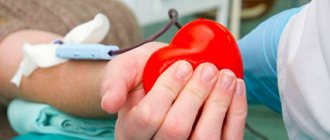Espresso, cappuccino, latte, mocha, Americano - these drinks have become an integral part of our daily life. Millions of connoisseurs know that they are based on coffee beans. However, what secrets does a cup of invigorating elixir keep?
Like 3
10463
The most famous legend says that the Ethiopian shepherd Kaldi was the first to notice the unique properties of the drink. He noted the strange behavior of his goats, who, after eating dark red fruits and leaves of the coffee tree, became active and awake. Kaldi shared his knowledge with the monk, and he tested the hypothesis. The grains were brewed, and the decoction invigorated during long prayer services and relieved fatigue. Subsequently, the recipe was improved.
Coffee first appeared in Russia during the time of Peter I. Catherine the Great loved the hot drink. The Empress used ground coffee for cosmetic purposes. The history of coffee goes back many decades, and the modern resident of a metropolis is a systematic consumer of the drink.
- 218
More details - 162
More details
- 222
More details
- 234 216
More details
By the way
, in terms of the amount of coffee consumed per capita, Finland is in first place, the USA is in second, the UK is in third and Russia is in fourth place.
Today, store shelves and bright cafe windows are full of choice. Coffee producers offer a whole line of different varieties of this product, which includes ground beans for connoisseurs and instant beans for those who are often in a hurry. Let's figure out what is the secret of the success of the elixir of vigor and is it really useful?
Coffee: the pros and cons of the drink
All food products have their pros and cons for human health, coffee is no exception. You can often hear from doctors that this is a harmful drink, but the fact that it gives you vigor is known even without them. True connoisseurs of this popular drink will be interested to know what its pros and cons are and what effect it has on the human body.
Many scientists argue that coffee is not a safe drink, but they agree that if consumed in moderation, it will not cause harm to health. According to scientists, 2-3 cups of aromatic drink cannot have a negative effect on the body. Nutritionists advise drinking 4-6 cups of coffee.
According to the results of recent studies, this amount of an invigorating drink is completely safe, but exceeding the dose can negatively affect your health. Let's take a closer look at its advantages and disadvantages.
Pros:
- The drink contains natural antioxidants necessary for the body.
- It is able to prevent the formation of stones in the kidneys and bile ducts.
- Coffee can help ease asthma attacks.
- The aromatic, sugar-free drink prevents the development of diabetes.
Minuses:
- Possible development of heart disease.
- Increases cholesterol.
- Provokes arthrosis.
Harm of coffee to health
When and for what reasons should you avoid drinking coffee?
- Pregnant women should drink coffee very carefully. Drinking four or more cups per day increases the risk of miscarriage by 33%. However, 1 – 3 cups per day reduces the likelihood of intrauterine fetal death by 3%.
- In menopausal women, 4 or more cups per day increases the risk of osteoporosis.
- Excessive coffee consumption increases the blood levels of total and LDL cholesterol (“bad cholesterol”), which contributes to the progression of atherosclerosis.
Harm of coffee for women
The female body is more sensitive to external factors, which is why coffee can cause more harm to it. Drink abuse reduces the possibility of normal conception of a child.
Sometimes it is worth refraining from consuming the product during menstruation. During this period, some women experience an unstable emotional and mental state, and another powerful external irritant can only aggravate the situation.
Coffee is harmful for pregnant women. This negatively affects the state of the nervous and cardiovascular systems of the body. The child may also develop growth retardation and low weight. Abuse of the drink during pregnancy can cause a miscarriage.
Coffee is one of the causes of cellulite and the formation of wrinkles on the skin. It can cause your skin to dry out and your tooth enamel to darken.
Harm of coffee for men
Excess caffeine in the male body can cause urinary incontinence . If left untreated, this disease becomes chronic. Sex therapists also talk about the dangers of coffee.
In small quantities, coffee is good for potency, but if abused, it has the opposite effect.
Black coffee: pros and cons
The benefits of this drink are undeniable. When consumed, the hormone that improves mood, serotonin, is intensively produced. It effectively helps overcome depression.
If you drink a cup of aromatic drink in the morning, your performance will increase by 10%. It contains microelements important for the functioning of the body, such as vitamin P, B5. Many headache medications contain caffeine.
It also has harmful properties. The caffeine contained in the drink activates the activity of the heart, which causes blood vessels to narrow and blood pressure to increase. People who drink more than 6 cups per day have a 50% increased risk of heart attack.
Coffee stimulates the production of dopamine, and the nervous system is in an excited state. Therefore, insomnia and other sleep disorders may occur. Caffeine acts as a diuretic, flushing out essential minerals and vitamins for the body. When drinking an aromatic drink, it is necessary to replenish the fluid lost by the body.
Caffeine negatively affects intestinal function. If you drink coffee frequently, your digestion may be disrupted. And it is also addictive.
The best bean coffee brands:
- Paulig.
- Kimbo.
- Gut.
- "Live Coffee"
- Gaggia.
- Malongo.
- Lavazza.
- EvaDia.
- Italcafe.
Bean coffee is highly valued among gourmets; each of the presented brands has a rich taste and its own unique aroma.
Effects of coffee
The effects of coffee taken in moderate doses (4 mg/kg caffeine per day) are mostly positive and, among other things, promote gastric activity, slow heart rate and help with bronchodilator dilation, improving allergic or asthmatic conditions. On the other hand, if we take caffeine in large doses (more than 10 mg/kg per day), there are some negative effects. For example, especially when taken on an empty stomach, coffee can cause heartburn and acidity, as well as tachycardia, hypertension and arrhythmia. Strengthens anxiety conditions, causing excitability, tremors and insomnia.
Instant coffee
Let's look at the pros and cons of instant coffee. He has his fans and opponents. Those who love instant coffee are sure that it consists of the same ingredients that are present in natural coffee. The instant drink is easy to use and store. It has no sediment and dissolves not only in boiling water, but also in cool water.
The instant invigorating drink has fewer calories. But lovers of natural coffee claim that instant coffee cannot be compared to real coffee; the aroma and consistency are far from natural.
Many people think that an instant drink has less caffeine in its composition than a natural one, but this is far from the case. In fact, the amount of caffeine in natural coffee is an order of magnitude less. Because of this, doctors do not recommend drinking instant drinks often. It is better to replace it with grain.
It's healthier and tastier. Instant drinks contain a large number of harmful chemicals, unlike custard drinks. They make instant coffee. The pros and cons of using it are:
1. Pros:
- Duration of storage.
- Availability and low price.
- Easy to prepare.
- Little caffeine.
2. Cons:
- Caffeine is eliminated from the body over a long period of time.
- Contains a large number of chemicals.
- Causes increased stomach acidity.
- Removes nutrients and speeds up the digestion process.
Reasons not to drink coffee:
Photo source: pixabay.com
Overcoming addiction is beneficial
Addiction to any substance is a risky and often harmful habit. Of course, the worse the substance, the more serious the problem. Drugs or illegal medicines are some of the worst examples. However, addiction to any substance is harmful to health. If you are addicted to coffee and rely on it every day, it is not healthy. Overcoming any addiction will give you more freedom and power over yourself.
For most people, caffeine is somewhat addictive, although some describe it as highly addictive. Regular and large amounts of coffee and caffeine consumption changes our brain chemistry, meaning we need more and more of the substance to achieve the results we want.
Giving up caffeine or coffee interrupts the cycle and frees us from the daily need to drink coffee to function properly.
Financial Savings
If you drink coffee regularly, you will also have to buy it. Coffee prices vary greatly, some are cheaper, others are very expensive. If you drink a lot of coffee, you will also spend a lot of money on it.
Photo source: pixabay.com
Especially all kinds of cafe visits in the city, regularly visited, drain your budget. Drinking coffee at home is, of course, cheaper, but more and more people like to drink coffee in the city. We come to a cafe for work, meet with friends, and at each such outlet there are regular expenses for coffee.
The cost of coffee and caffeine addiction can be significant, and you can save a lot of money by giving up coffee.
Better sleep
Of course, it is known that coffee and the caffeine it contains are a natural brain stimulant, but its consumption affects your sleep and the quality of your sleep. Even if you don't drink coffee before bed, it can affect your sleep.
Caffeine can significantly reduce the quantity and quality of sleep. Drinking coffee or energy drinks in the evening may interfere with sleep, as caffeine has a half-life of 4-6 hours. Even people who don't drink caffeine at 12 noon report better sleep quality after quitting caffeine.
People who stop drinking coffee often see improved sleep quality and feel more alert after sleep. This in turn means they have more energy throughout the day.
Best mood
Coffee affects your mood. For those who are accustomed to drinking coffee regularly, a lack of it at certain times can cause poor mood and well-being.
Photo source: pixabay.com
Caffeine changes your mood. Many people say they are more irritable until they drink their morning coffee, while others feel like they are sluggish when the caffeine stops working in the afternoon.
Eliminating coffee from your diet can offset these fluctuations—the ups and downs of your mood. Don't let any substances or bad habits affect your mood, emotions and the way you communicate with people. Stimulants should not have any power over you.
Reducing Anxiety
Research shows that coffee often increases anxiety and worry levels. This is because caffeine increases the amount of adrenaline in the body. Caffeine stimulates the adrenal glands.
Quitting coffee or caffeine may make you feel less anxious, especially if you are prone to anxiety problems.
Deciding to stop taking caffeine completely can be a great solution for people suffering from anxiety, especially if they begin to experience increased levels of anxiety and stress.
Less headaches
Caffeine is the main factor that causes headaches. Any changes in your daily caffeine intake can cause caffeine withdrawal headaches. Caffeine can also cause migraines.
Fewer trips to the toilet
Caffeinated drinks cause you to urinate more frequently and may even cause urinary incontinence in some people. Caffeine also stimulates the smooth muscles of the colon, which causes them to contract. This can be a problem during meetings, travel, or when there is no bathroom or its cleanliness is not conducive to use.
Eliminating coffee may reduce the need to use the toilet frequently, especially in the morning.
Healthy and white teeth
Drinking one cup of coffee a day is enough to notice changes in the color of your teeth over time. Depending on the coffee you drink, and especially the amount of sugar and milk you add to it, you may also experience dental problems. Especially if you drink all types of aromatic coffee with sweet additives.
Photo source: pixabay.com
Coffee, sour and sweet energy drinks, or sodas erode tooth enamel and can cause tooth decay. Eliminating these drinks results in whiter, healthier teeth.
Slender silhouette
Unless you drink your coffee black without any additives, caffeinated drinks tend to add empty calories to your diet that we don't really need. Many people sweeten their coffee and add milk to it.
Many experts say that sugary drinks are a component of the obesity epidemic that is plaguing our world.
A study conducted by the University of Victoria found that when caffeine is contained in a sweet drink, it causes people to consume more of that sweet drink compared to a decaffeinated sweet drink.
A cleaner natural environment
Photo source: pixabay.com
Caffeine addiction is an additional burden on our natural resources. Think about the number of mugs, bottles, jars and cups that need to be made to meet your needs.
Caffeine also showed up in city water supplies in the form of discarded coffee grounds. Quitting caffeine reduces your environmental footprint.
Caffeine will work again
Many people drink coffee every day because they need extra energy in the morning and afternoon.
However, after some time, our body gets used to a certain dose of caffeine, and coffee stops working for us. We stop seeing the energy benefits of drinking coffee.
Daily consumption of caffeine causes the human body to develop tolerance. After a longer period of regular caffeine consumption, the phenomenon of tachyphylaxis (tolerance) occurs, that is, a gradual weakening of the body's biological response. The same dose of caffeine causes a person to achieve a sense of normalcy rather than the euphoria they once felt.
Eliminating coffee restores caffeine tolerance, allowing it to actually work well in situations where it's really needed.
Less risk of drug interactions
Caffeine can interact with medications, causing them to not work properly. Avoiding caffeine reduces this risk.
No more seizures
Because caffeine is a natural stimulant, if we drink too much of it, it can cause our body to tremble. If you drink a lot of coffee and often suffer from involuntary cramps, you are likely experiencing one of the many side effects of taking too much caffeine.
This side effect of drinking coffee and caffeine can be annoying and even debilitating for some people. Quitting coffee can restore your balance.
Time savings and greater efficiency
What would you do with an extra hour every day? People who are addicted to coffee can easily waste time standing in line at cafes, taking coffee breaks at work, stopping at coffee shops, spending time cleaning and descaling the home machine, etc. The time saved can be use more productively.
Photo source: pixabay.com
Here are the main advantages and disadvantages of drinking coffee. You must decide for yourself whether drinking or stopping coffee is the best choice for you and your body.
What is your opinion on drinking coffee? Is it worth drinking? What is your experience with this? Share your opinion in the comment.
With milk
Everyone knows that milk is a storehouse of vitamins, minerals and amino acids. Its beneficial properties have been known to mankind since ancient times. You can and should consume milk and dairy products at any age; they are perfectly digestible. When consumed, the pros and cons of coffee with milk boil down to the fact that there is only one minus, it should not be drunk by obese people.
Adding milk to a drink is very useful; the ingredients in the invigorating drink remove beneficial substances from the body, and milk replenishes them. Caffeine has an stimulating effect on the body, while milk has a calming and relaxing effect. A drink with milk has a positive effect on the body, increasing productivity, giving vigor and energy.
This drink is useful for people with liver disease, as well as those suffering from gastritis, atherosclerosis, and heart disease. Even doctors recommend drinking coffee, but only natural coffee diluted with milk.
Diabetic patients are advised to add only skim milk to their coffee. Elderly people who cannot cope with insomnia are recommended to drink weak coffee diluted with milk at night.
The best brands of instant coffee:
- Bushido.
- Egoiste.
- Grandos.
- Carte Noire.
- UCC.
- "Moscow coffee shop on shares."
- Taster's Choice.
- Jardin.
- Today Pure Arabica.
- Moccona.
To find out which coffee is really the best, you first need to try it yourself.
List of main contraindications
There are contraindications in which coffee should be limited or completely eliminated. The main ones include:
- Pregnancy (the maximum allowable dose is 2 cups, it is better to avoid it altogether).
- Lactation.
- Any sleep disturbances.
- Mental disorders (neuroses, obsessive-compulsive syndrome, panic attacks, etc.).
- Diseases of the stomach and duodenum. This group includes: acute gastritis, exacerbation of chronic gastritis, peptic ulcer.
- GERD.
- Uncontrolled hypertension and symptomatic arterial hypertension.
- Smoking (the dose of caffeine should be reduced by at least 2 times, it is recommended to give up either coffee or smoking).
- Glaucoma.
- Taking oral contraceptives and fluvoxamine (an antidepressant). These drugs slow down the metabolism of caffeine in the body.
- Iron-deficiency anemia.
- Liver diseases with decreased functional activity of the organ (cirrhosis).
During pregnancy, caffeine can penetrate the feto-placental barrier and cause the development of biological effects in the fetus, which poses a high danger to the life of the unborn child. It is recommended to completely avoid coffee or significantly limit its consumption to 200 mg of caffeine (2 cups) per day.
When breastfeeding, coffee is strictly contraindicated, since large doses of caffeine penetrate into breast milk and even accumulate in it.
For children
coffee is also contraindicated. Due to the immaturity of most of the child’s body systems, the drink can cause harm (delayed growth and development, early development of cardiovascular diseases). The minimum age threshold for a teenager is 13-15 years.
Elderly people , in the absence of serious diseases of the cardiovascular system (uncontrolled hypertension, coronary heart disease, myocardial infarction or stroke in history), are allowed and even beneficial to drink coffee (1-2 cups per day). It helps increase life expectancy, is good for the brain and prevents the occurrence of extremely common degenerative brain diseases (Pick's disease, Alzheimer's, Parkinson's).
There are quite a few pathological conditions and diseases in which coffee can cause significant harm to the human body. If in doubt, consult a doctor.
Slimming coffee
Caffeine makes a person more alert, speeding up metabolism, and reduces hunger. This drink can be used as a good way to lose weight. But it is not suitable for everyone.
It all depends on the individual characteristics of the body. For some people, drinking coffee increases their appetite. For weight loss with coffee to be effective, you need an integrated approach. We must not forget that physical exercise and a low-calorie diet are mandatory.
Types and varieties of coffee
The homeland of the coffee tree, the beans of which are used in production, is the tropical highlands of Asia and Africa.
The coffee genus includes almost a hundred plants, but the fruits of only two of them are suitable for preparing an invigorating drink: Arabian and Congolese. Arabica is made from the fruits of the Arabian tree, while the fruits of the Congolese tree serve as raw materials for Robusta.
The following types of coffee exist:
- Arabica;
- Robusta;
- Liberica;
- Arabusta;
- Excelsa.
Almost 70% of the world's coffee is Arabica. Its aroma and taste are considered more refined than robusta.
The less popular variety is cheaper and has almost twice as much caffeine, but Robusta produces a strong coffee foam. The share of other types accounts for up to 2% of the market.
The basic types of coffee beans come in many varieties. Mixing them in different proportions creates blends with a special aroma and taste.
The most popular Arabica varieties:
- Colombia;
- Maragogyp;
- Typica;
- Bourbon;
- Katimor;
- Caturra;
- Geisha.
Natural grains are pale green or beige in color. When fried, they acquire a brown tint and increase in size.
The darkest is Italian roast. A little lighter - French and Viennese. The lightest is Scandinavian.
Popular types of coffee drinks:
- Espresso;
- Cappuccino;
- Americano;
- Latte;
- Glasse;
- Doppio;
- Romano;
- Ristretto;
- Macchiato;
- Irish.
Which product to choose for weight loss
Today, coffee manufacturers advertise their product in large numbers as the best for weight loss and claim that you can lose more than 5 kg per month. First of all, the consumer should take into account that only natural coffee is needed for weight loss. Soluble is not suitable.
Ingredients in coffee for weight loss:
- Guarana.
- Green tea.
- Fresh unprocessed coffee.
- Bitter orange.
- Rhubarb.
- Various spices.
The best way to lose weight is green coffee. Green beans that are not roasted contain a special acid. It converts fat cells into energy. They have a special effect on the intestinal walls, which begin to absorb less sugar under the influence of uncooked grains. Thanks to this, metabolism accelerates.
If you combine proper nutrition with physical activity, and also drink this drink, you can achieve significant results and lose 2 to 4 kg within a month.
Decaf Coffee: Pros and Cons
The caffeine-free product is a healthy alternative to the classic drink. Since caffeine has a generally depressing effect on the body, causing addiction, anxiety, insomnia, and constant fatigue , it is better to drink the drink without it. All negative effects (increased blood pressure, increased heart rate, liver problems) are caused by the action of this substance.
The caffeine-free drink also has its downsides. So, it lowers blood pressure. This is due to the diuretic effect, which is neutralized in a regular product due to caffeine. But this same property can benefit patients suffering from high blood pressure.
Regardless of the preparation method, it will not be possible to completely remove caffeine; at least 1–2% will always remain.
Caffeine content should be considered before offering coffee to pregnant women or children.
In general, decaffeinated coffee does not differ in aroma and taste from the regular version of the drink. It does not have an invigorating effect, so it can be consumed before bed.
How green coffee works
Substances contained in green grains interfere with the synthesis of cholesterol and fat cells, accelerate fat metabolism and increase energy costs. Green grains break down fat and remove toxins and excess water from the body.
What are the pros and cons of green coffee for weight loss? This question interests many who have decided to lose extra pounds with the help of this drink.
Pros:
- Burns only fat deposits.
- With green coffee you can lose about 5 kg within a month.
- Increases performance and gives vigor.
- Dulls the feeling of hunger.
- Clears the skin of acne.
- Normalizes blood sugar.
Minuses:
- Increases blood pressure.
- Causes dehydration.
- If consumed in excess, it can cause ulcers and gastritis.
- Pregnant and nursing mothers should not drink.
This drink will help you lose weight and benefit the body if a person has no contraindications to drinking coffee.
Benefits of coffee
- Coffee beans contain the alkaloid caffeine, which has a psychostimulating effect. Both the benefits and harms of coffee are associated with it. The benefit is to stimulate the nervous system and cardiac activity, thereby increasing performance and increasing blood pressure (which is good for hypotensive patients).
- Drinking coffee helps prevent type 2 diabetes. This is due to the content of chlorogenic and caffeic acids, as well as caffeine. These 3 substances inhibit the accumulation of amyloid protein, which contributes to the development of non-insulin-dependent diabetes mellitus.
- Coffee prevents the development of Parkinson's disease. Scientists noticed this connection in a practical way, noting that decaffeinated coffee does not prevent this disease (by the way, this effect was more pronounced in men).
- Prevention of stroke and cardiovascular diseases occurs due to the dilation of blood vessels in the brain and heart under the influence of caffeine.
- Substances contained in coffee increase gastric secretion - they increase the acidity of gastric juice. This property is useful for patients with gastritis with low acidity.
- Coffee is believed to help combat depression. Moreover, in women this effect is more pronounced.
- According to American scientists, drinking coffee reduces the risk of developing alcoholic cirrhosis of the liver. Scientists suggest that this effect is not due to caffeine, but to another unstudied substance.
Features of green coffee for weight loss
These grains may or may not be roasted during cooking. You can grind them in a regular coffee grinder and cook them in any way. Its taste is herbal and aromatic. It is best to purchase green coffee for weight loss at a pharmacy. When using it, you must follow the instructions exactly, otherwise it may cause harm.
The best brands are: Green Coffee, Abrecafe, Cafe Mince Green.
Reviews from people who have tried this weight loss drink and from doctors are positive. Some claim to have lost 10 kg in one month, some claim to have lost 5 kg. But there are people who expected a greater effect and lost up to 3 kg in a month. Each body can react differently to green coffee; the pros and cons can only be learned by trying its effects on yourself.
What are the benefits of coffee?
The quality of the drink, its tonic effect and richness depend on how much caffeine it contains. The benefit of the substance is that it stimulates the functioning of the brain and strengthens memory. This is especially important for people over 50 years old. The beneficial properties also include the fact that coffee enhances performance, improves mood, and helps relieve stress.
In small quantities, Coffee strengthens potency and affects sexual desire.
In addition, it improves kidney function and has a positive effect on the functioning of the lungs, increases the content of fatty acids in the blood, which helps replenish wasted energy.
Coffee contains antioxidants. These substances slow down the processes of destruction and aging of body cells. They help keep you healthy and fresh. If coffee beans are roasted for a short time, the antioxidant content will only increase, while in over-roasted beans their volume will decrease as they disintegrate under the influence of high temperature.
The benefits of coffee are that when consumed without added sugar, tooth decay can be prevented. In addition, coffee has medicinal properties and is a prophylactic for the following diseases:
- diabetes;
- cirrhosis of the liver;
- cancer;
- Parkinson's and Alzheimer's diseases.
There is no end in sight to this dispute, since coffee, unlike energy drinks, is a natural product, therefore, it can be both beneficial and harmful. An analogy can be made with a tomato. This fruit is tasty and healthy, but in patients with gout it can cause an exacerbation of the disease, and if you eat several kilograms of tomatoes at a time, you can get poisoned. We will talk about coffee, the benefits and harm to human health in the presence of any diseases in the article.
Benefits of coffee for the liver
With the direct participation of alkaloids, the pathological process of scarring of parenchymal tissue is significantly reduced, which means that liver fibrosis can be prevented with this home method. This is an effective prevention of cirrhosis, viral hepatitis, gradual destruction of the liver parenchyma against the background of alcohol intoxication with the formation of extensive foci of necrosis.
For men
Coffee for liver diseases is recommended to be consumed not only by women, but also by men. However, the spectrum of action of this tonic drink does not end there; for example, a cup of invigorating coffee on an empty stomach stimulates the mucous membranes of the stomach, thereby speeding up the process of bowel movements, demonstrating a mild laxative effect and making going to the toilet easier. Here's how the drink affects the male body:
- Ground coffee contains tannins, proteins, chlorogenic acid, minerals, polysaccharides, and fiber that are valuable for the body.
- In moderate doses, coffee can be taken for liver diseases, in order to normalize the functions of the bile ducts. This is an effective method of combating liver cirrhosis and prevention.
- For acute pain, coffee has a moderate analgesic effect, but its therapeutic effect is short-lived.
- If you drink a coffee product, a man's chances of experiencing the joy of fatherhood significantly increase.
- This natural product increases the physical endurance of the male body during intense exercise.
Features of choice
Even the most expensive elite coffee can be spoiled if improperly stored and transported. What you should pay attention to when choosing:
- The grains should not have a dull color, they should shine.
- What matters is how the grains smell. The smell should not be moldy or have any rancid notes.
- Coffee beans must be without any cracks and have a complete appearance.
- Price. It cannot be low if it is high-quality coffee.
The most expensive coffee is produced in Indonesia and Jamaica. Its cost reaches $400 per kilogram.
The pros and cons of drinking coffee may be different for each person, because the physiology of the body and diseases are different for everyone.
The main thing is not to overuse the aromatic drink, and then there will be no health problems.
A short excursion into history
In ancient times, black coffee beans were not brewed, but rather eaten after being fried in oil. For several centuries in a row, the drink was not a drink at all, but was included in the list of expensive, gourmet dishes. The product was primarily valued for its powerful tonic and stimulating effect.
The whole world owes the appearance of this delicious drink to Arab merchants; it was they who first brought grains to Yemen. Of course, at that time no one thought about the question of whether drinking coffee was healthy, but simply enjoyed the taste and aroma. However, very soon clergy and healers began to talk about the benefits of coffee - coffee infusion helped overcome feelings of fatigue and cope with drowsiness.
Coffee makes you smarter
We all experience a certain physical-emotional slump at 2 p.m. You just ate too much for lunch, causing all your blood to go to your stomach instead of to your brain. Maybe you didn't get enough sleep last night, and your morning efforts are paying off.
In normal doses, caffeine stimulates the production of brain chemicals such as dopamine and norepinephrine. It lifts your mood, improves concentration, reduces reaction time and even improves memory. A person is less likely to suffer from depression with long-term caffeine consumption.
"Energy" drinks do not have to display caffeine content on the bottle, but many do contain more caffeine than regular drinks. They're also flavored with sugar, so try drinking straight black coffee instead of energy drinks.
Drinking a cup or two can be a good way to start the work day or compensate for fatigue; even if you drink coffee frequently and your body has developed some tolerance to caffeine. The half-life of caffeine is how long it takes for the kidneys and liver to reduce the amount of the substance in your blood by 50%; and this rate varies significantly among individuals. You may notice that the energizing effect wears off within an hour and a half or even ten, and you need to feel more energetic for 15 minutes or 2 hours.











